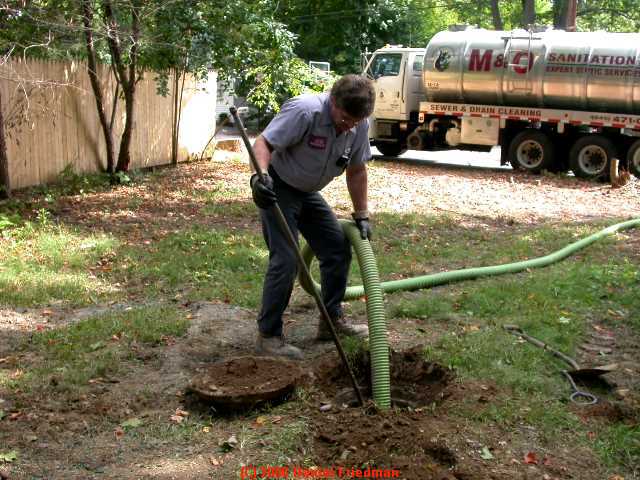For a homeowner, few things could be more stressful and unpleasant than having a septic system fail. Such a failure can block the transfer of liquid waste from your home to your septic tank, causing overflows and potentially contaminating nearby lakes and streams.
To put it more bluntly and colorfully: a septic system failure is bad news because shit water will run all over the place. Nobody wants that, right?
It can come gurgling back into your toilets and even your bathtub. Yuck.
It can run all over your yard, polluting your immaculately manicured lawn.
Your pets will die slow painful deaths after having frolicked in the spewing septic juices.
Your wife will be doing the dishes and all-of-a-sudden, nasty brown water with will backflow into the sink and get all over her freshly-cleaned Fiestaware.
She’ll divorce you and take away your children.
Okay. Okay. Maybe that’s a little overdramatic, but the point stands. You don’t want your septic system to fail. And when it does, you want it remedied as quickly as possible, preferably by a septic system repair expert.
Let’s focus on the best way to deal with a septic disaster, which is to avoid it altogether.

Septic FAIL Prevention
A famous wise man once said “an ounce of prevention is worth a pound of cure.”
Ben Franklin probably would have prescribed a more liberal dose of “prevention” when the “pound of cure” involves slogging through a metric shit-ton of diarrhea water.
So how do you prevent that displeasing outcome?
Do your due diligence and perform regular maintenance checks. Not a septic system expert? Well, most of us aren’t. Hire an expert. Before the problem arises.
The right expert can provide a septic tank inspection, and they can often spot potential problems and offer inexpensive remedy options long before those unmistakable odors start wafting through the air.
Getting your septic system inspected on an annual basis will ensure that all preventative maintenance – things like cleaning out the tank and the lines and ensuring that all components are functioning properly – is completed long before disaster strikes.
Plumbing technology has come a long way in recent years, and your best septic system contracting outfits will have things like video drain inspection units capable of diagnosing problems that otherwise would have been impossible to detect.
Know the Warning Signs
While preventative maintenance can help you avoid issues before the symptoms become noticeable, it is also important that you are able to diagnose an impending septic system failure by keeping your eye on the warning signs. Some of these are obvious, others a bit more subtle. Warning signs of a septic system failure include:
- Strong sewage odors emanating from the septic tank and/or septic line. (Duh.)
- Standing water on your lawn.
- Sinkholes popping up throughout your lawn (if they stink, it is definitely a sewage issue)
- Lots of vermin (mice, rats, etc) running about your lawn
- Sinks draining slowly.
- Toilets not refilling all the way.
Replace as necessary
Even a well maintained septic system has a lifespan of only 20 to 30 years, so at some point in your home’s life you will likely need to upgrade. Septic tanks that aren’t cleaned been cleaned out regularly are even shorter lived. It’s really a lovely thing to picture: “sludge” caked on so thick that there’s hardly any room for wastewater to flow.
So if you need a complete septic system overhaul, this is probably one expense where it isn’t a good idea to be super frugal. Fortunately, most local health departments and/or environmental agencies offer advice on how to deal with issues, and if you don’t already have a close relationship with an experience septic tank expert in your area, these local governmental agencies can often assist in connecting you with licensed repair companies. In some cases, tax credits and federal dollars can also be available to defray some of the costs of necessary upgrades, through the United States Clean Water Act.
